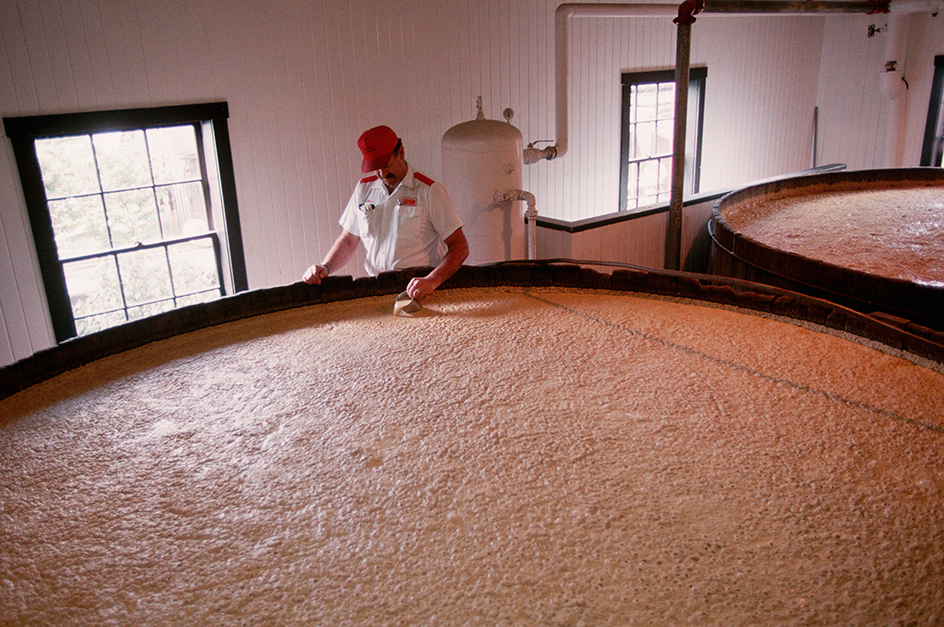Fermentation << `fur` mehn TAY shuhn >> is a biological process that breaks down organic materials in the absence of oxygen. Fermentation is carried out by microbes, such as bacteria, molds, and yeasts. Fermentation has many practical uses. For example, certain molds ferment mixtures of sugars and other chemicals to produce penicillin. In beer brewing, yeast consumes sugar from malted grain, turning it into carbon dioxide gas, heat, ethyl alcohol, and small amounts of other compounds. Fermentation by bacteria serves as an essential step in the production of cheese and yogurt. Fermentation can also be harmful. For example, fermentation in meat can cause the deadly food poisoning botulism.

Manufacturers make a variety of food and beverage products through fermentation. Most such products use the same basic methods. First, workers fill stainless steel tanks with carbohydrates and other nutrients. Then, they allow microbes to ferment the nutrients over a period of days. When fermentation is complete, the manufacturer may further refine the product. For instance, spirits manufacturers distill the liquid to separate the ethyl alcohol.

People also use fermentation to grow and produce microorganisms, such as yeast and Lactobacillus. Dairy food makers use Lactobacillus in the making of cheese and yogurt. Fermentation is also used to make pharmaceuticals, vitamins, and industrial chemicals. Some wastewater systems use bacteria to ferment sewage water, producing methane gas.
People have used fermentation to make alcoholic beverages since ancient times. But scientists did not discover how microbes cause fermentation until the 1800’s. At that time, the French biologist Louis Pasteur studied fermentation in wine. His work advanced the French wine industry and led to a better understanding of food-borne illness.
See also Alcoholic beverage; Food preservation (Acid); Food preservation (History); Lactic acid; Pasteur, Louis; Silo; Yeast; Yogurt.
